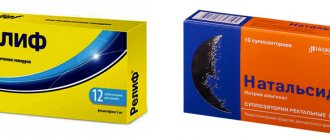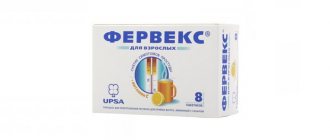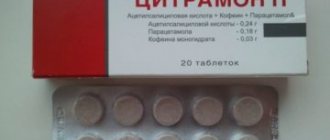Zovirax is used in medicine as a medicine to treat herpes infection. The product effectively fights the spread of viral particles in the body and helps get rid of the manifestations of herpes in different parts of the body, including lips, genitals and skin of other areas. Topical forms can be used with a low risk of side effects. Only a doctor prescribes medicine according to indications and after examinations.
Medicines based on antiviral components play an important role in the symptomatic treatment of herpes. No medicine will help completely get rid of the virus, but the combination of competent drug therapy with prevention makes it possible to permanently eliminate any signs of the disease. Self-medication is unacceptable.
Composition of the drug
The active ingredient is acyclovir. Its content and the presence of other substances depends on the form of release. There are different types of products for oral and external application.
Zovirax tablets
Two hundred milligrams of the active ingredient in one piece. Also milk sugar, starch, polyvinylpyrrolidone K30, magnesium salt of stearic acid and fiber. Oral use.
Zovirax cream
Five grams of active substance in one hundred grams of liquid dosage form, that is, a five percent cream. Also propylene glycol, paraffin wax, ethyl, Pluronic 407, sodium dodecyl sulfate, dimethicone, glycerin, stearic acid macrohead and water.
Externally or locally.
Zovirax ointment
Thirty milligrams of the active ingredient in one hundred grams of the dosage form. Additionally, Vaseline is present. Only for local treatment of the eye according to the indications of an ophthalmologist.
Lyophilisate Zovirax
One bottle contains two hundred and fifty milligrams. There is also caustic soda. Used in the preparation of solution for injection.
Intravenous administration.
Therapeutic effect
An antiviral drug that disrupts the reproduction of two types of herpes simplex viral particles, chickenpox, Epstein Barr and cytomegalovirus. The greatest effect is in the direction of herpes simplex. The chemical compound penetrates cells and disrupts the formation of new virions. It has a weaker effect on other types of pathogens. Drug activity is characterized by a high degree of selectivity. The substance does not alter metabolic and enzymatic processes in healthy cells, so the toxic effect on normal tissues is minimized.
Auxiliary properties
- Infected and healthy epithelial cells contain an enzyme substance called thymidine kinase. The drug acts on this chemical compound only in cells with the virus. The enzyme converts the active ingredient into the monophosphate form. Next, after a cycle of transformations, the triphosphate form of the substance appears. This chemical compound integrates into the deoxyribonucleic acid of the pathogen and disrupts its reproduction.
- If a person suffers from a congenital or acquired disorder of the body's defense system, prolonged and repeated use of the drug sometimes leads to the emergence of resistant pathogens. This is complicated by a decrease in the effectiveness of drug therapy. The mechanism of resistance is due to a decrease in the amount of the enzyme and the transformation of structures responsible for replication.
- Studies have not been able to determine the correlation between the susceptibility of pathogens to the active ingredient and treatment results.
It has a strong complex effect, but good results can only be achieved when used under medical supervision.
Pharmacokinetic features
The oral form overcomes the intestinal barrier and enters the bloodstream. The drug is partially absorbed. The distribution concentration depends on the dosage taken. Poorly binds to plasma proteins. Half the concentration is found in the cerebrospinal fluid. Transformed in liver tissue. The half-life is three hours. Almost completely excreted from the body in urine. It is possible that indicators may change if there is renal dysfunction.
Other form
Ophthalmic ointment ensures the penetration of the medicine into different parts of the eyeball, including the intraocular fluid. A local therapeutic concentration occurs. Insignificant amounts reach other parts of the body, so there is no systemic effect. The cream also has no general effect.
Possible delayed elimination of the active ingredient in elderly people when used orally.
Contraindications
- Allergy to acyclovir or valacyclovir or components of the drug.
- Contraindications for intravenous administration of the drug: renal failure, dehydration, reactions to intravenous administration of cytotoxic drugs (including in the past), neurological disorders, pregnancy.
- Contraindications for oral administration of the drug: renal failure, dehydration.
The use of Zovirax in all dosage forms is contraindicated in the presence of hypersensitivity to the components of the drug, as well as to valacyclovir.
For lactating and pregnant women, the drug can be used only in cases where the benefit to the health of the mother is higher than the possible risk to the child or fetus.
When administering intravenously and taking Zovirax orally, caution should be exercised in patients with renal failure and in patients with signs of dehydration. Additionally, the solution for infusion should be administered with caution during the development of reactions to cytotoxic drugs when administered intravenously (and if there is a history of such reactions), as well as in the presence of neurological disorders.
Indications for use
- Herpetic infection with damage to the skin and mucous membranes in different parts of the body, including the genitals. Can be used for initial occurrence and relapses. Both types of herpes simplex.
- Manifestations of the infectious process in patients suffering from HIV infection or acquired immunodeficiency syndrome. Including rare manifestations. Can also be used after bone marrow transplant.
- Reducing the risk of infection with viruses if a person’s body’s defense systems are impaired.
- Damage to the structures of the eyeball (ointment.)
- Inflammation of the skin of the lips (cream)
- Preventing relapses of herpes infection in healthy people.
- Other diseases such as chicken pox and shingles.
The doctor conducts an examination and prescribes the necessary therapy. You should not select dosages and medications on your own.
Decreased immunity and herpes
The weakening of the immune system with the onset of pregnancy is considered a normal physiological reaction.
A decrease in the body’s defenses occurs so that the woman’s body does not reject a foreign body, such as the fetus. For this reason, chronic infections worsen in a pregnant woman or new ones enter the body. The woman becomes vulnerable to colds. Herpes is caused by different types of virus. As a rule, the first type of virus (simple) causes a “cold” on the lips. The second type of virus is genital herpes, which is especially dangerous for expectant mothers.
The threatening feature of herpes is that once it enters our body, it remains there for life and treatment only temporarily dulls its external manifestations. And relapses are possible throughout life. These relapses (that is, repeated external manifestations of herpes) are promoted by stress, illness, and conditions that are characterized by decreased immunity. Pregnancy is just that case.
Most people are carriers of the herpes virus. When a woman was a carrier of herpes type II even before the onset of an interesting situation, antibodies to the pathogen had already formed in the body, protecting the baby in the womb.
It is much more dangerous to become infected with the second type of this virus during pregnancy. Until antibodies are formed, the child remains without protection from the virus. The baby can also become infected from the mother during childbirth while passing through the birth canal.
But don't worry too soon. After all, intrauterine infection of a child is quite rare. Genital herpes is not a reason to terminate a pregnancy.
Side effect
- CNS organs: reversible disorders of nervous activity, cephalalgia, impaired consciousness, hallucinosis, dizziness, sleep disturbance, coma, convulsive reactions. Such negative effects were more often found when higher doses were used in patients with renal impairment.
- Digestive organs: urge to vomit, change in the consistency of stool, pain in the abdomen, increased bilirubin, increased activity of enzyme substances of hepatic origin.
- Excretory system: increased urea, increased creatinine, acute renal impairment.
- Hematopoietic organs: anemia, decreased leukocytes, decreased platelets.
- Allergies: skin rashes, soreness, increased sensitivity to ultraviolet radiation, urticaria, Quincke's edema, respiratory failure, anaphylactic shock.
- Others: weakness, hair loss over the entire surface of the scalp. Alopecia of this type can form due to various pathologies, so there is no specific connection to the active ingredient.
Stops the spread of the virus
If there are signs of allergies or other complications, you should immediately consult your doctor. There are usually no complications when taken in addition to antiretroviral medications.
Instructions for Zovirax
If therapy for herpetic infections of the first and second types is intended, you need to take two hundred milligrams five times a day. It is carried out over five days, but sometimes the doctor prolongs the treatment. In case of severe disruption of the body's defense systems and deterioration in the absorption of the substance in the intestine, it is possible to increase the dose to four hundred milligrams five times a day. You should start taking it when the first signs are detected, since its results depend on the timeliness of therapy.
To reduce the risk of relapse with intact immune function, you should drink two hundred milligrams four times a day. Or you can take four hundred milligrams twice a day. Sometimes lower dosages, like two hundred milligrams three times a day, show results. Therapy cycles sometimes need to be stopped for six months to a year for observation.
Other schemes
- Reducing the risk of relapse in people with impaired functioning of the body's defense systems: two hundred milligrams four times a day. For severe immunodeficiency, you can take four hundred milligrams five times a day. The duration of preventive measures is determined by the doctor.
- Chickenpox or shingles: eight hundred milligrams five times a day. During the week. If the immune system is impaired, take the same dose four times a day.
- Bone marrow transplant: First, the doctor administers the medicine intravenously for a month. The duration of therapy can be six months or even a year. Next, an oral dosage regimen is selected.
- Treatment of herpes simplex in a child with impaired immunity: the same dosage from the age of two years and half the dosage from the age of two years.
- Chickenpox in a child: eight hundred milligrams once in patients over six years of age; four hundred milligrams once in patients from two to six years of age; two hundred milligrams once for children under two years of age; For five days. There is no information on use when the child has preserved immunity.
Can be used while eating. In case of impaired renal function and advanced age, the doctor selects a more accurate regimen taking into account the indicators.
Topical forms
A strip of ointment ten millimeters long is placed in the conjunctival sac. Five times a day. It is carried out before tissue restoration and for another three days after that. The cream is applied five times a day to the infected area in a small layer. At least four days. If used for longer than ten days, you should contact a specialist. You must wash your hands before use.
Additional Information
- Accidental overdose can lead to the following negative consequences: dyspepsia, vomiting, nervous system dysfunction, cephalalgia, convulsive reactions, coma. You should immediately seek medical help.
- There may be interaction effects with other medications when used simultaneously. You should consult your doctor about this.
- Potassium channel blocking medications and cimetidine may slightly alter elimination patterns, but dosage changes are not required.
- If medications are also excreted from the body via tubular secretion, the level of active components in the bloodstream should be monitored, as it may increase.
- Use together with mophenil may change the distribution characteristics of the active ingredient.
- Use during pregnancy is permissible only under medical supervision, taking into account the risks. It is advisable to discontinue breastfeeding during therapy, since the chemical compound enters the secretions of the mammary glands.
- If higher doses are used, adequate drinking regime must be maintained.
Detailed information in the full instructions.
Analogs
Substitutes for the drug are Valaciclovir and Famciclovir, which have a similar mechanism of action.
Valacicovir is an effective drug based on the active substance valacyclovir hydrochloride. The drug is available in the form of tablets that have an antiviral effect. Despite the fact that the drug has the same indications for use as Zavirax, there are still many contraindications. These include:
- Children under 18 years of age;
- Allergy to drug substances;
- Having HIV;
- For kidney and bone marrow transplantation.
If you do not follow the instructions and recommendations of your doctor, the following side effects may occur:
- Allergic reactions on the skin - itching, burning, urticaria;
- Neuropenia, vasculitis;
- Rhinorrhea, dehydration;
- Psychosis, hallucinations, ataxia and even falling into a coma;
- Increased pressure;
- Deviation in kidney function;
- Hepatitis.
As you can see, the medicine has severe and very serious consequences, so you should not self-medicate. The course of therapy with this drug is determined by the doctor, taking into account the characteristics of the patient’s body.
Famciclovir is also an effective analogue, used to treat herpes of any stage, herpes zoster and chickenpox. Compared to Zavirax, this drug is not addictive and has a targeted effect on the lesions. With proper use of the drug, you can get rid of relapse of the disease. Available in the form of tablets containing active substances. During administration, do not subject the tablet to mechanical stress; it is better to immediately drink it with water. Before use, read the instructions, because with proper use of the medicine you can speed up your recovery.











